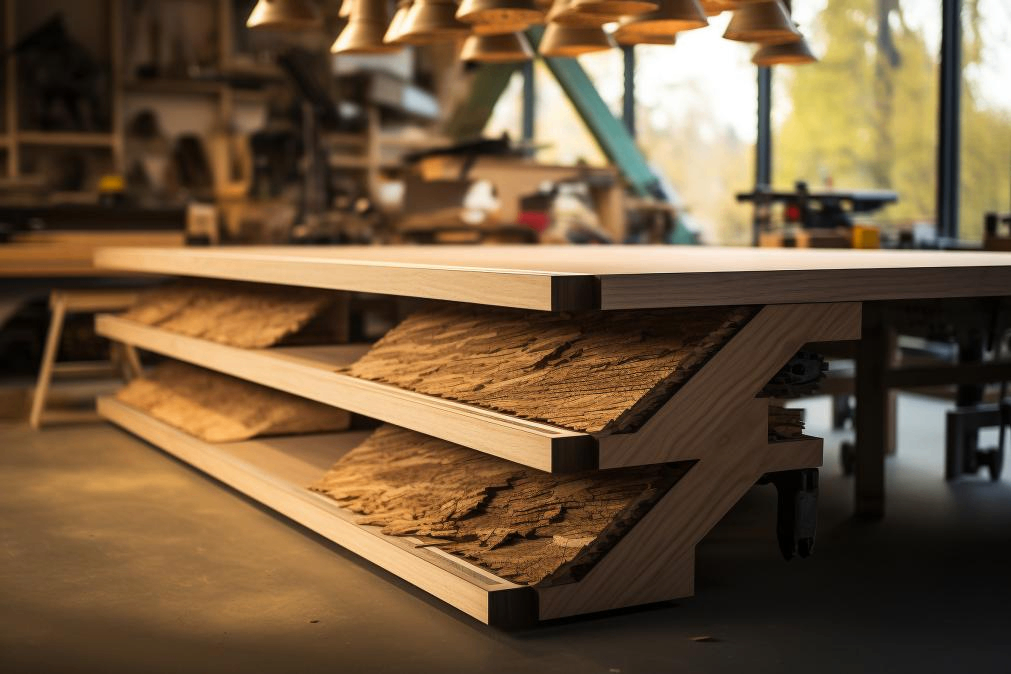In the global landscape of the building materials market, the Middle East region, with its unique economic development momentum and large-scale construction upsurge, has emerged as a new hotbed for the building materials industry. Among them, the wood market, as an important component of the building materials market, demonstrates robust development vitality and diverse demand characteristics.
Image Source:699pic.com
In recent years, the building materials market in the Middle East has been booming. Saudi Arabia, relying on its ambitious "Vision 2030", is actively promoting a series of large-scale construction projects covering various fields such as housing, commercial facilities, and infrastructure. The planned construction of 1.5 million new housing units, like a huge boulder thrown into the building materials market, has set off a huge wave, generating a massive demand for various building materials, including wood. The United Arab Emirates is equally active, constantly driving the innovation and transformation of the construction industry, and actively exploring new building models with wood as the main building material, further expanding the development space of the building materials market. SUMEC, as a global supply chain trading service provider, also pays close attention to the development of this market and has made local deployments to expand related businesses.
The rapid economic development in the Middle East and the implementation of the economic diversification strategy have injected continuous impetus into the development of the wood market. Large-scale infrastructure construction and the continuous rise in the demand for residential properties have led to a sharp increase in the demand for wood as a basic building material. The booming development of the household and office furniture manufacturing industries has also significantly driven the demand for wood. In the category of building materials, wood is widely used in building boards, prefabricated wooden structures, and aluminum-wood composite doors and windows. The quality requirements for construction wood are extremely strict. Wood used for building house frames, supporting roof structures, and serving as wall panels not only needs to have excellent strength to bear the weight of the building and various external forces but also requires good durability to withstand the complex and changeable climate conditions in the Middle East. SUMEC building materials export business can well serve customers in the Middle East, procuring high-quality construction wood resources for them on a global scale.
Decorative woods, such as wooden moldings, veneers, and decorative panels, play an important role in interior decoration in the Middle East. These decorative woods are widely used in the outlining of interior decorative lines, the beautification of walls, and the delicate treatment of furniture surfaces, adding a unique aesthetic and texture to indoor spaces. In high-end decoration projects, consumers have a particularly prominent demand for decorative woods with special textures or special treatments, as these woods can highlight the unique taste and luxurious atmosphere of the space. In this regard, SUMEC building materials products also have great advantages. Its products are diverse, and their appearance and quality can well meet the different needs of customers. At the upcoming 137th Canton Fair, SUMEC will exhibit various types of board products. Welcome everyone to come and consult.
With the continuous enhancement of global environmental awareness, the Middle East region has gradually incorporated the concept of sustainable development into the development of the wood market. In the construction field, more and more countries and projects are beginning to prefer to choose wood with a low carbon footprint as a substitute for concrete and steel. This transformation not only helps to reduce carbon emissions in the construction industry but also conforms to the long-term goal of the Middle East region to pursue green and sustainable development. At the same time, some countries in the Middle East actively encourage the use of wood from sustainable sources and require wood suppliers to provide relevant sustainable certifications, such as Forest Stewardship Council (FSC) certification. In this way, it ensures that the source of wood is legal, compliant, and sustainable, laying a foundation for the healthy and sustainable development of the wood market. The building materials market in the Middle East, especially the wood market, is in a process of rapid development and profound transformation. Strong and diverse demands, a high degree of import dependence, and a positive pursuit of sustainable development together constitute the unique features of the Middle East wood market. For global wood suppliers and related enterprises, the Middle East market undoubtedly contains huge development opportunities, but also faces the challenges of meeting the diverse needs of the market and adapting to the trend of sustainable development.



